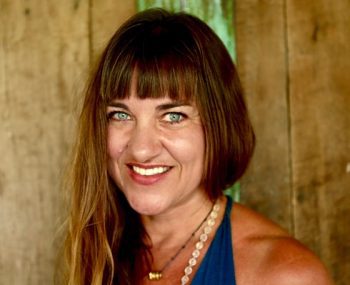Guest writer for Wake Up World
Ever since we docs started teaching people the importance of smoking cessation, moderation in alcohol intake, a nutritious, mostly plant-based diet, daily exercise, and weight control, millions of people have been beating themselves up for unhealthy lifestyle habits. Yet the guilt and shame so many feel hasn’t led to significant improvements in the health of the general public. Even though people know how to live a “healthy” lifestyle, most choose not to. Instead, rates of diabetes, obesity, high blood pressure, heart disease, and other largely preventable diseases are on the rise.
Bummer.
While lots of people rattle off about the importance of healthy lifestyle modifications – and as a green-juicing, exercising, non-smoking, health food junkie, I agree with them – what shocks me is how few are talking about the other critical factors that contribute to health and longevity – the factors that are arguably even more important than diet, cigarette use, alcohol intake, weight, and exercise.
Some Diseases Are Preventable
Before I share with you these factors that may shock you, let me start with a hat tip to conventional medical wisdom. Yes, some diseases are largely preventable. If you’re a 3 pack-a-day smoker who winds up with lung cancer, you’re probably feeling pretty crappy about your cancer because you know that if you had never smoked, you probably wouldn’t have been saddled with that disease. If you’ve been eating at McDonalds every day, it won’t surprise you if a heart attack knocks you flat and you have to get bypass surgery. If you’ve been boozing it up for three decades and you wind up with cirrhosis of the liver, well… not to be harsh, but you knew that might happen, right? If you’re four hundred pounds and you get diabetes, um… need I say more?
Yes, if we aim to lead optimally healthy lives, diet, exercise, weight control, alcohol intake, and cigarette use matter.
Some Unhealthy People Live To Be 100
But let’s face it. Some smoking, boozing, overweight, junk food binging couch potatoes stay healthy and die of old age. As a physician, these people have always blown me away. How are their bodies so resilient to such poisons? Is it genetic? Is it just dumb luck? These people left me scratching my head, until I was doing the research for my book Mind Over Medicine: Scientific Proof That You Can Heal Yourself (Hay House, 2013).
Clearly, there are many factors contributing to why one person winds up sick when another stays healthy, in spite of poor health habits. The same is true for the health nut who is doing everything “right” but still winds up sick.
So what are these factors that your doctor probably isn’t discussing with you?
Loving Community Equals Health
Let me start by telling you a story.
Once upon a time, a tribe of Italian immigrants crossed the Atlantic and settled in Roseto, Pennsylvania, where they didn’t exactly live the most “healthy” lifestyle. They ate meatballs fried in lard, smoked like chimneys, boozed it up every night, and pigged out on pasta and pizza. Yet, shockingly, they had half the rate of heart disease and much lower rates of many other illnesses than the national average. It wasn’t the water they drank, the hospital they went to, or their DNA. And clearly, it wasn’t their stellar diet. So what was it that made the people of Roseto so resistant to heart disease?
One physician, baffled by their low rates of heart disease, studied the townspeople to determine why they were so protected.
The Effects of Loneliness On The Body
What his researchers found is that the tight knit community living in multi-generational homes and enjoying communal dinners and frequent festivities provided solace from the loneliness so many people feel. The love and support of others in the close knit community alleviated the stress and overwhelm many lonely people feel. Researchers posit that the stress lonely people feel, which increases cortisol levels and activates the sympathetic nervous system, raising heart rate, elevating blood pressure, incapacitating the immune system, and increasing the risk of heart disease, is responsible for much of the illness lonely people experience.
Because the people of Roseto never felt alone, they rarely died of heart disease – most died of “old age” – even though they smoked, ate poorly, and drank. As it turns out, alleviation of loneliness is preventative medicine, and the scientific data suggests that loneliness is a stronger risk factor for illness than smoking or failure to exercise.
Why One Person Gets Sick & Another Stays Healthy
It’s not just loneliness that contributes to whether you get sick or stay healthy. As I discussed in my TEDx talk, it’s not just your relationships that affect your health – it’s work stress, financial stress, mental health issues like depression and anxiety, whether you’re optimistic or pessimistic, and whether or not you’re actively engaging in potentially stress reducing activities like creative expression, sex, and spiritual activities like prayer, attending religious services, or meditation.
For example, let’s take one person who eats poorly, smokes, and never exercises, but who enjoys an incredible marriage, a great family, fabulous friends, a rewarding and financially lucrative job, a sense of life purpose, a healthy spiritual life, a blossoming creative life, and a kickin’ sex life. Aside from the cloud of smoke infusing the lungs with toxins and the poisons this person’s body is ingesting, this kind of lifestyle has been scientifically proven to result in better health than the lonely individual in an emotionally abusive marriage, with a soul-sucking job, no sex life, an absent spiritual life, and no creative outlets. The scientific data suggests that the “unhealthy” individual with an otherwise healthy, balanced life is more likely to live a long, healthy life than a nonsmoking, abstaining vegan with a personal trainer who is unhealthy and miserable in all other facets of life.
Make sense?
How Healthy Is Your Life?
In my upcoming book, I go into great detail, proving how each of these factors of a healthy life affect the physiology of the body, but until then, let me just assure you that what I’m suggesting is true. I’m not recommending that you pick up smoking, drinking, or overeating (and if you already have, you can read here about how I think you shouldn’t kick the habit until you’re ready). But I am suggesting that you start thinking about your health beyond the traditional confines of how most people define health. (You can read more about my expanded definition of health here.)
Recommended articles by Lissa Rankin:
- 8 Ways Overcoming Fear Can Improve Your Health
- 10 Fun Ways to Reduce Your Cortisol Levels
- 6 Stories To Make You Believe In The Power Of The Mind To Heal You
-
6 More Stories To Make You Believe In The Power Of The Mind To Heal You
- Why Engaging In Work You Love Could Save Your Life
- The Health Benefits Of Finding Your Tribe
- 7 Tips For Finding Your Tribe
About the authors:
Lissa Rankin, MD is a mind-body medicine physician on a grass roots mission to heal healthcare, while empowering you to heal yourself. She is the founder of the Whole Health Medicine Institute training program for physicians and healthcare providers, and the New York Times bestselling author of the books Mind Over Medicine: Scientific Proof That You Can Heal Yourself (2013), The Fear Cure (2014), and The Anatomy of a Calling (2015).
Lissa blogs at LissaRankin.com and created the online community HealHealthCareNow.com. She is also the author of several other books, a speaker, a professional artist, an amateur ski bum, and an avid hiker. She lives in the San Francisco Bay area.
Connect with Lissa on Facebook and Twitter, or visit LissaRankin.com.

If you've ever found value in our articles, we'd greatly appreciate your support by purchasing Mindful Meditation Techniques for Kids - A Practical Guide for Adults to Empower Kids with the Gift of Inner Peace and Resilience for Life.
In the spirit of mindfulness, we encourage you to choose the paperback version. Delve into its pages away from screen glare and notifications, allowing yourself to fully immerse in the transformative practices within. The physical book enriches the learning process and serves as a tangible commitment to mindfulness, easily shared among family and friends.
Over the past few years, Wake Up World has faced significant online censorship, impacting our financial ability to stay online. Instead of soliciting donations, we're exploring win-win solutions with our readers to remain financially viable. Moving into book publishing, we hope to secure ongoing funds to continue our mission. With over 8,500 articles published in the past 13 years, we are committed to keeping our content free and accessible to everyone, without resorting to a paywall.









